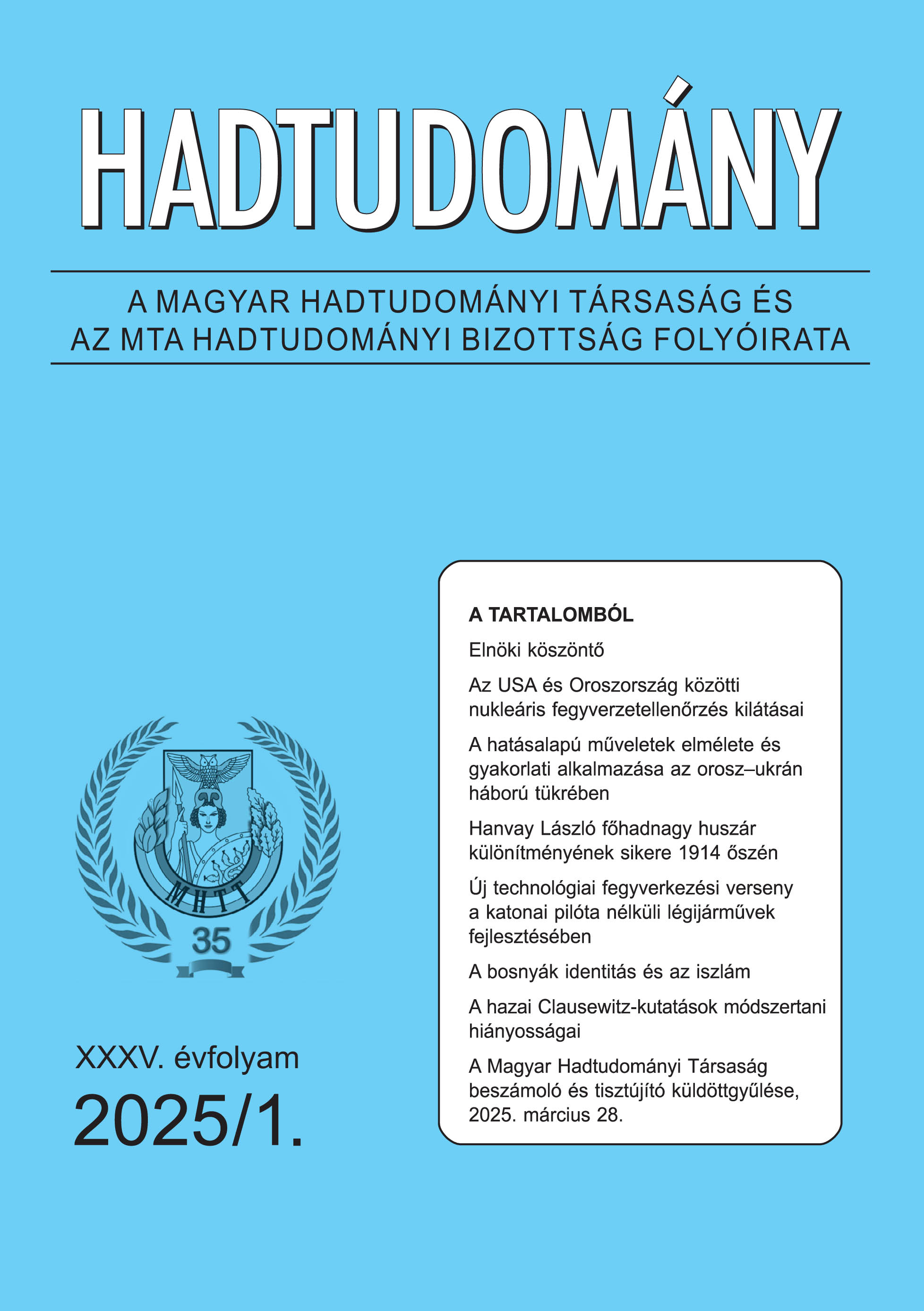The Role of Effect-Based Military Operations in Modern Warfare
Abstract
Due to the complexity of modern warfare, the effectiveness of military operations depends not only on the extent of conventional military operational capabilities, but also on the holistic effects induced to achieve strategic goals. The concept of Effects-Based Operations, implemented as an integrated approach, attempts to influence the system processes describing the operational environment by using military, political, economic, social and information domains together. The aim of EBO is to prevent warfare from being based solely on kinetic means and have complex operations carried out based on a system-level analysis, resulting in the achievement of the desired strategic goals through triggering effects. The study presents the theoretical foundations of EBO, the possibilities of its practical application, as well as its challenges and limitations in modern military operations, especially regarding the Russo-Ukrainian war. It pays special attention to the role of technological development, artificial intelligence, and cyber warfare in the application of EBO.
References
Ált/216. A MH Törzsszolgálati Szabályzata II. rész – A Magyar Honvédség kiadványa, Budapest, 2015., VI–57.
Clausewitz, Carl von 2014. A háborúról. Budapest: Zrínyi kiadó, 667–668.
Davis, Paul K. 2002. Effects-Based Operations – A Grand Challenge for the Analytical Community. Arlington: RAND Corporation.
Deptula, David A. 2001. Effects-Based Operations: Change in the nature of Warfare. Arlington: Aerospace Education Foundation.
Duczynski, Guy 2004. Effects-Based Operations: A Guide for Practitioners. Edith Cowan Univ Perth.
Echevarria, Antulio J. II, 2003. Clausewitz’s center of gravity – It’s Not What We Thought. Newport: Naval War College.
Fazekas Ferenc 2023. Az átfogó hadijáték: A hatások játszmája. Honvédségi Szemle, 151 (2): 65–72. https://real-j.mtak.hu/24737/7/HSZ_2023_2.pdf https://doi.org/10.35926/HSZ.2023.2.6
Fazekas Ferenc, Jobbágy Zoltán, Krajnc Zoltán 2021. Az átfogó művelettervezés kihívásai a multitér műveletek és a mesterséges intelligencia alkalmazásának tükrében. Hadtudomány, 31 (4): 3–26. https://ojs.mtak.hu/index.php/hadtudomany/article/view/8167/6695 https://doi.org/10.17047/HADTUD.2021.31.4.3
Fox, Amos C. 2024. The Russo-Ukrainian War: A Strategic Assessment Two Years into the Conflict. Land Warfare Paper 158, February 2024. https://www.ausa.org/publications/russo-ukrainian-war-strategic-assessment-two-years-conflict
Hadtudományi lexikon. Új kötet. 2019. Fõszerk. Krajnc Zoltán, Budapest: Dialóg Campus.
Hackett, Michael T., Nagl John A. 2024. A Long, Hard Year: Russia-Ukraine War Lessons Learned 2023.
The US Army War College Quarterly: Parameters, 54 (3): 41–52. https://doi.org/10.55540/0031-1723.3302. https://publications.armywarcollege.edu/News/Display/Article/3890256/a-long-hard-year-russia-ukraine-war-lessons-learned-2023/
Slessor, John C. 2009. Air Power and Armies. Tuscaloosa: University Alabama. Smith, Edward A. Jr. 2006. Effects-Based Operations. Security Challenges, 2 (1): 43–62.
Warden, III, John A. 1998. The Air Campaign. iUniversum; Revised edition. 32




